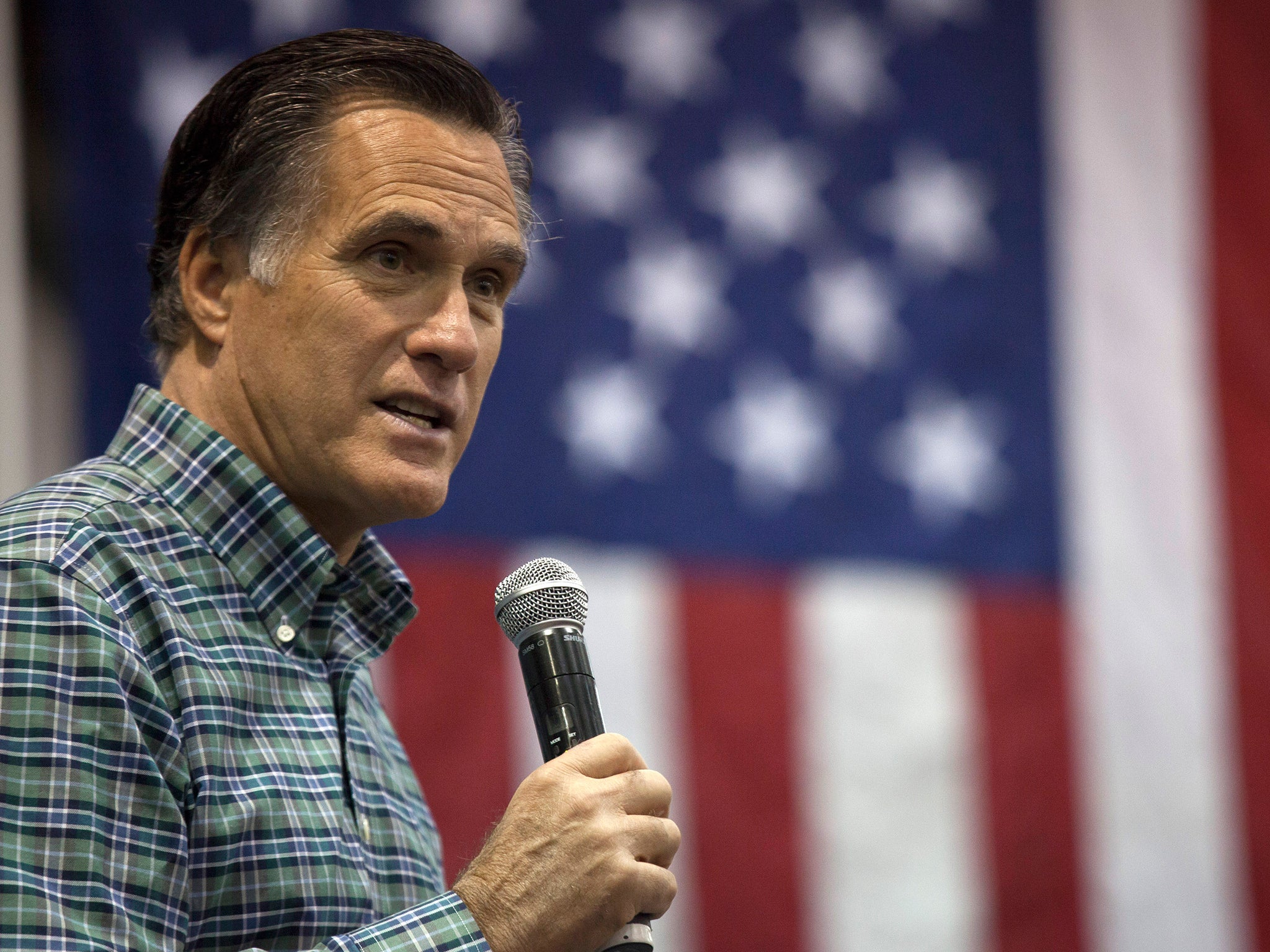US midterm elections: Big win fails to yield a Republican front-runner
Comment

Your support helps us to tell the story
From reproductive rights to climate change to Big Tech, The Independent is on the ground when the story is developing. Whether it's investigating the financials of Elon Musk's pro-Trump PAC or producing our latest documentary, 'The A Word', which shines a light on the American women fighting for reproductive rights, we know how important it is to parse out the facts from the messaging.
At such a critical moment in US history, we need reporters on the ground. Your donation allows us to keep sending journalists to speak to both sides of the story.
The Independent is trusted by Americans across the entire political spectrum. And unlike many other quality news outlets, we choose not to lock Americans out of our reporting and analysis with paywalls. We believe quality journalism should be available to everyone, paid for by those who can afford it.
Your support makes all the difference.The 2014 US midterms clarified many things.
They handed control of Congress to Republicans. They proved that the GOP can win in normally Democratic states. On one issue however they shed precious little light: who is in pole position for the Republican presidential nomination two years hence?
The only conclusion be drawn is that Tuesday was a good night for the bevy of present and former Republican state governors eyeing a White House run. The leitmotif of these latest elections was a dislike of Washington and all its works: not just President Obama, but a desperately unpopular Congress, where at least three Republican senators – Rand Paul of Kentucky, Ted Cruz of Texas, and Marco Rubio of Florida – and Representative Paul Ryan, Mitt Romney’s running mate in 2012, are potential candidates.
Their prospects might change, in the unlikely event Congress transforms itself into a constructive, less partisan agent for legislation the country badly needs. But after one charismatic untried senator with minimal executive experience who was catapulted into the White House in 2008 only to disappoint, American voters may not want to elect another.
In most White House elections, past and present governors start with an advantage as perceived “outsiders”, unsoiled by service in Washington, but who have shown they can run a state, if not the country. Before Barack Obama, four of the previous five presidents were former or incumbent governors. The exception was George HW Bush. However, as a one-time Republican Party chairman, director of the CIA and ambassador to China, not to mention Vice-President for eight years, executive experience was one thing he certainly did not lack.
This time, at least eight past and present governors are being mentioned as possible candidates, among them of course Jeb Bush, once a successful two-term governor of the vital swing state Florida, and both the son and brother of presidents.
He wasn’t prominent in the midterms. But Jeb knows what the White House entails, and the singlemindedness required to win it – which is why some doubt he has the stomach for running the gauntlet of a Republican primary season in which he will be the target of conservatives who loathe his moderate stance on immigration and other issues.
And of course there’s another battle-tested former governor in the wings: Mr Romney, who lost to Obama in 2012 but who achieved a certain dignity in defeat, and has explicitly not ruled out a third White House run this time around.
But the real focus is on the sitting governors who might enter the field, and who proved their mettle in the midterms. Three in particular stand out: Scott Walker of Wisconsin and John Kasich of Ohio, who both convincingly won on Tuesday in swing states crucial to presidential victory – and Chris Christie of New Jersey, currently chairman of the Republican Governors Assocation.
Mr Christie’s image was badly sullied by scandal in 2013. But his relentless campaigning this year contributed to his party’s net gain of two governorships, and its wins in the traditional Democratic strongholds of Illinois, Massachusetts and Maryland. He has, moreover, long indicated his interest in a White House bid.
But the list doesn’t end there. Louisiana’s young Indian-American governor Bobby Jindal has been sounding out a run. So has Rick Perry, the outgoing and thrice-elected governor of Texas, and so too has Mike Huckabee, a former governor of Arkansas, who finished a respectable runner-up to John McCain in the 2008 nomination race.
Join our commenting forum
Join thought-provoking conversations, follow other Independent readers and see their replies
Comments